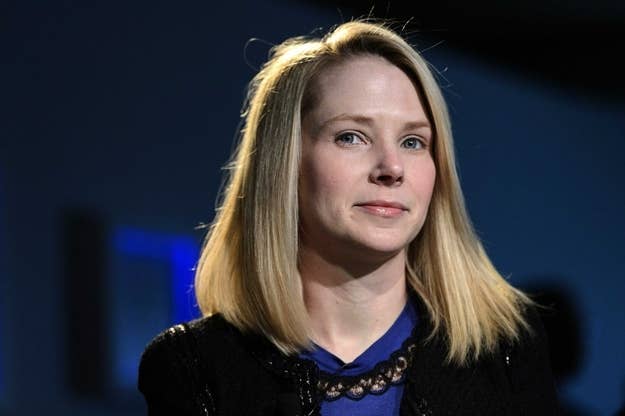
By eliminating Yahoo's work-from-home policy this week, Marissa Mayer has set off a debate over whether having women in leadership roles makes workplaces better for the women below them.
For all the debate — over whether female executives help narrow the wage gap or whether they create more family-friendly workplaces — few answers exist, since real information on the issue is strikingly hard to come by. Regardless of what it ends up showing, more public data about parental leave and other work-life policies at companies would be good for American workers.
There are few, but not many, studies on the topic in corporate environments. One study in Sweden found that, at least as of 2008, female managers didn't have an effect on the wage gap — women weren't more likely than men to pay their male and female employees equally. However, only 36% of managers in the study were female — still outnumbered by men, it's possible that they didn't feel able to challenge the status quo. Another study [PDF] conducted in the US using 2000 census data found that women tended to earn more when their industries (not just their companies) had more female managers, and that the effect was much stronger when these managers held high-status positions.
When it comes to whether female CEOs and other high-level managers affect maternity leave and other work-life balance issues (including ability to work from home), the data is especially lacking. A representative for Catalyst, a research firm specifically dedicated to advocating for women in business, said the group has never studied this question. Academic research on the issue appears similarly thin — Steven Wisensale, a professor of family studies and author of Family Leave Policy: The Political Economy of Work and Family in America, said he was unaware of any broad-based research on whether female CEOs affect leave.
Getting information about work-life policies is difficult, which may explain why information is so lacking in this area. Maternity leave and other company benefits aren't always publicly available. The New York Times is studying parental leave policies at tech companies in the wake of Mayer's announcement, but hasn't yet heard back from Yahoo. Some companies voluntarily complete a questionnaire on such policies for Working Mother magazine's yearly list of 100 most family-friendly companies — interestingly, in 2012, HP and IBM, America's two largest companies with female CEOs by revenue made this list.
Though still not particularly thorough, government research offers more insight. Several studies have found that female legislators are more likely than male ones to prioritize legislation concerning women's rights or family issues. States with two female senators are also likely to have more female legislators at lower levels, but it's not clear whether this is because of the influence of the senators or because of demographic factors.
Without more data on work-life policies, it's hard to tell whether women in positions of corporate power have a real positive effect. Perhaps more troublingly, it's also hard for workers to know what's available elsewhere or to find out how their employers compare. And if data on such policies were public, companies might have an incentive to do better. If employers actually faced a PR nightmare for coming up short on parental leave, they might get a lot more family-friendly.
